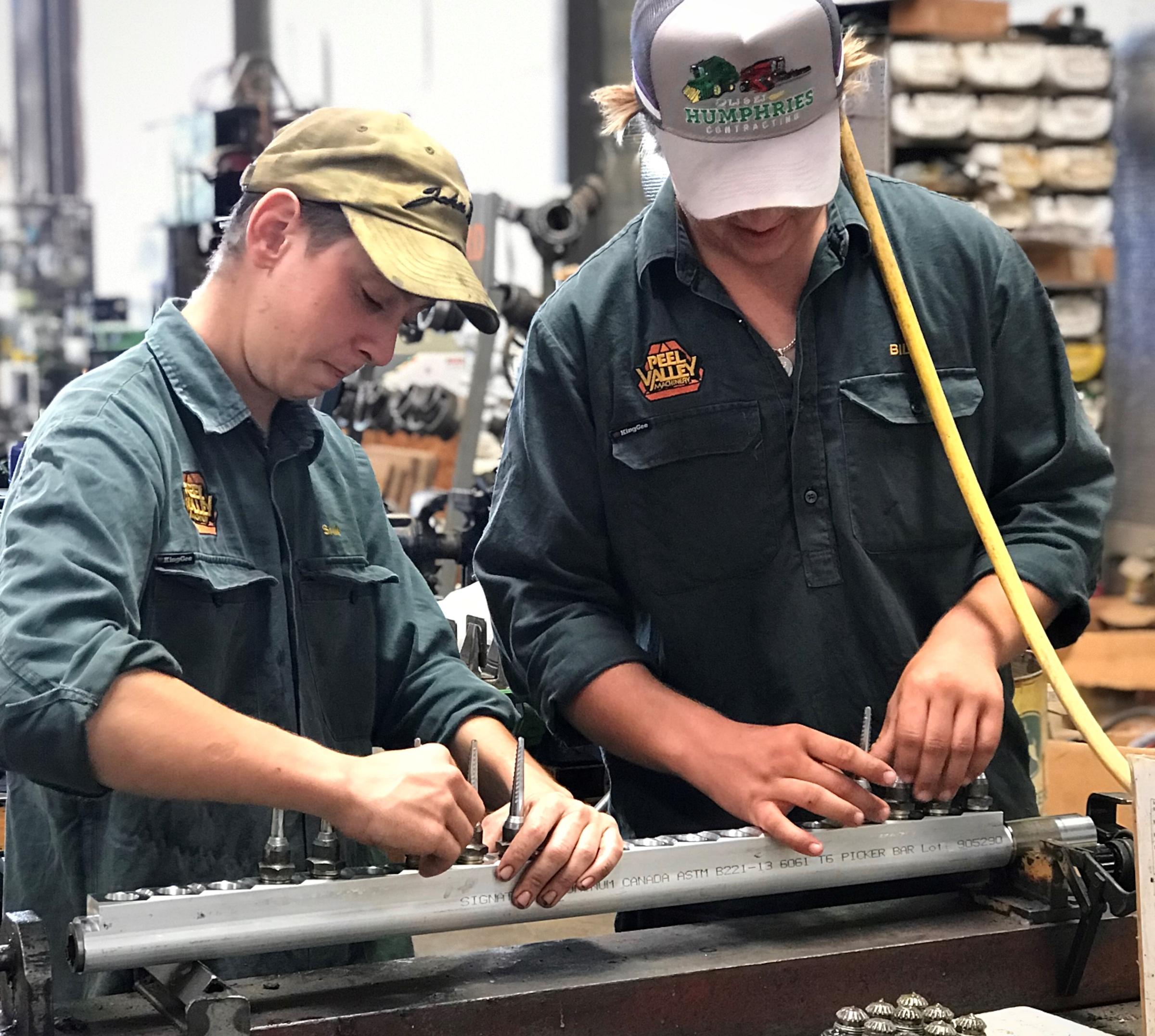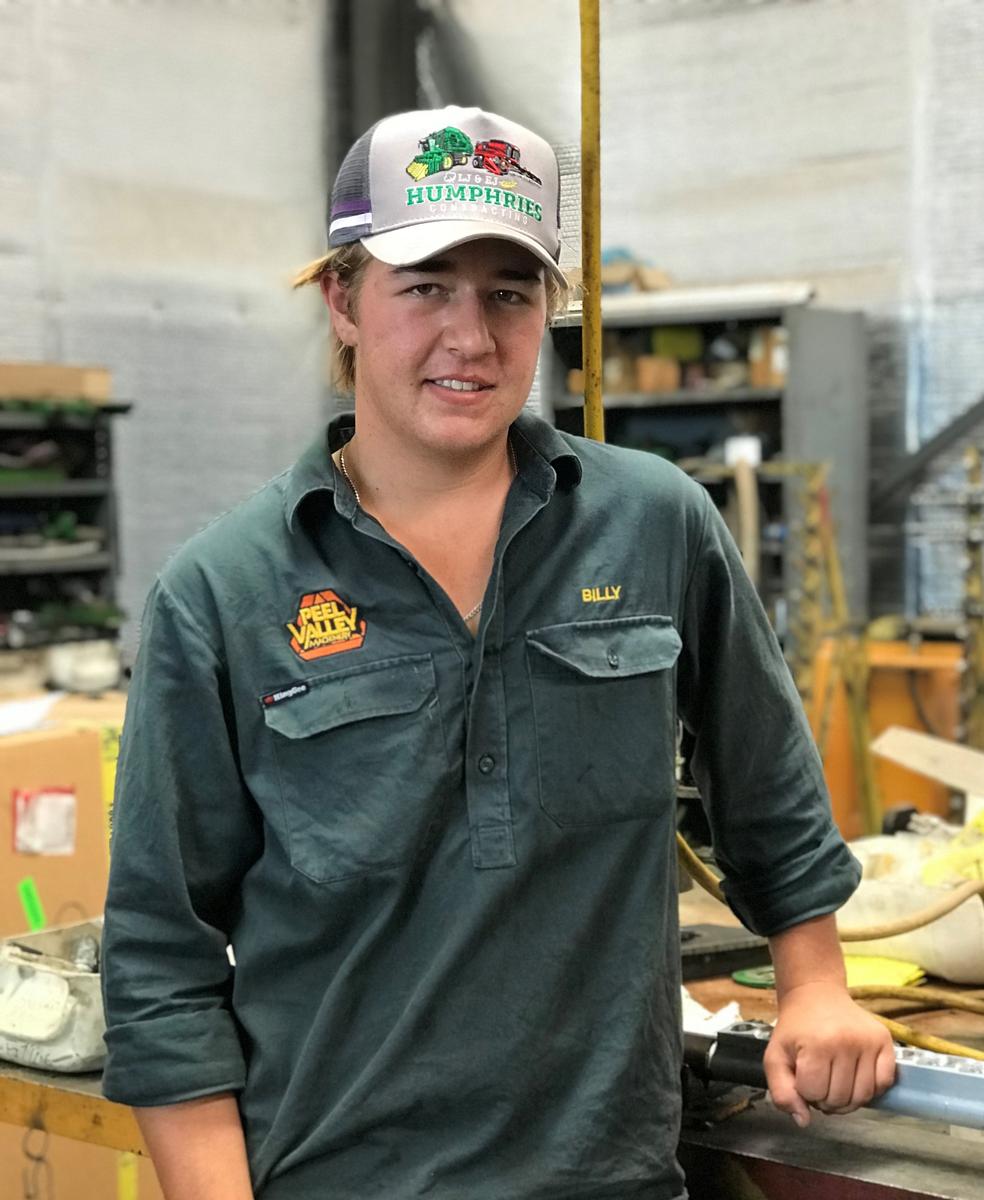SBAT Program Gets Major Boost

Wee Waa High School is proud of the long-term success of our School Based Apprenticeship and Traineeship program (SBAT) and the difference it makes to a young person’s future and for local participating businesses.
The SBAT program is a part of the Department of Education’s Education Pathways Program. It provides students from Year 9 onwards with the opportunity to begin working and studying in an area of interest to build early years vocational competency and qualifications.
The program is designed to improve education and career outcomes for students by introducing them to a range of post-school training and employment pathways. Participating students combine working one day a week with study in their chosen SBAT area, say mechanics, farming or nursing while continuing on with their high school education.
Late last year the opportunity arose to apply for funding and resources for schools to grow the number of students participating in the SBAT program, have greater resources to support participating students and to offer greater diversity of choice in vocational pathways.
Wee Waa High School principal, Ms Annabel Doust was quick to submit a successful application. ‘This is such an important program for students as they are able to gain on-the-job experience and training while continuing with their high school studies. Early on it is introducing them to vocational pathways that greatly enhance their employability in the future’.
‘Another important outcome is that participating students can see just how important subjects like maths and English are for their future working life and we’ve seen increased participation in these areas as a result’.
Careers Advisor, Ms Stephenie Blewitt agreed and added, ‘Over the years, dozens of Wee Waa High School students have been able to step straight into a permanent role or continue on with their apprenticeship with their SBAT host employer after finishing high school.
‘It’s a win for students because they are able to begin their training and gain qualifications while still at school and gain valuable practical experience to help them determine their preferred career direction’.
‘It’s also a win for host employers as it allows them to build a potential future employment relationship with a student before they finish school, so that when they commence full time employment their skill level is much higher’.
The Peel Valley Machinery Group is a great example of the success of the SBAT program. As an early adopter and long-term partner in the program with Wee Waa, Tamworth, Gunnedah and Quirindi High Schools, General Manager, Andrew John explained; ‘We became involved as it really made sound business sense to partner strategically with high schools in the communities we operate in to build important employment and employee pathways. We invest heavily in the training of each member of our staff, so we need to get our hiring decisions right’.
‘Years ago we used to put an advertisement in the local paper, trial applicants for a few days and try to judge from there who was best suited and the one most likely to make a long term commitment to seeing their apprenticeship through. This could be an inaccurate science and costly when it didn’t work’.
‘The SBAT program was a game changer. The school makes recommendations to us about potential participants early-on at the Year 9 level and from Years 10 and 11 for some of our locations. We meet with each student before making a short list, potential students do a few days work experience on-site, and we then decide who is most suited to the opportunity and our company culture. We involve the parents from very early on which is important’.
‘With the SBAT program, students work with us one day a week and during some of the school holidays. While at school the students study the theory component of their traineeship through TAFE or another accredited training company. They are paid the award wage, so they earn while they are learning and gaining experience’.
‘We no longer recruit students that haven’t completed Year 12. We look to see evidence that people commit and see things through. At the end of Year 12 when they have also completed their SBAT, the trainees have achieved qualifications that count towards an apprenticeship. They are more highly trained and have experience which means that if we offer them fulltime employment, they commence on a higher wage than a first-year apprentice. This means that as an employer we can be more competitive with the salary we offer, as we are able to justifiably charge their time out to clients at higher rate given they have a greater level of skills’.
‘During their SBAT traineeship, it gives the employer a really good understanding of the student’s capability and commitment. We team them with experienced people so from day one they are seeing, listening and learning valuable skills and knowledge and doing meaningful work. We want to see each of our staff do well, so we invest heavily in them. By the time an apprentice has completed their apprenticeship, we would have spent upwards of $100,000+ on their training component.
‘The SBAT program has enabled us to develop strong links with high schools in the communities we operate in and achieve great success with our trainee recruitment decisions. I really can’t recommend it highly enough, said Mr John’.

